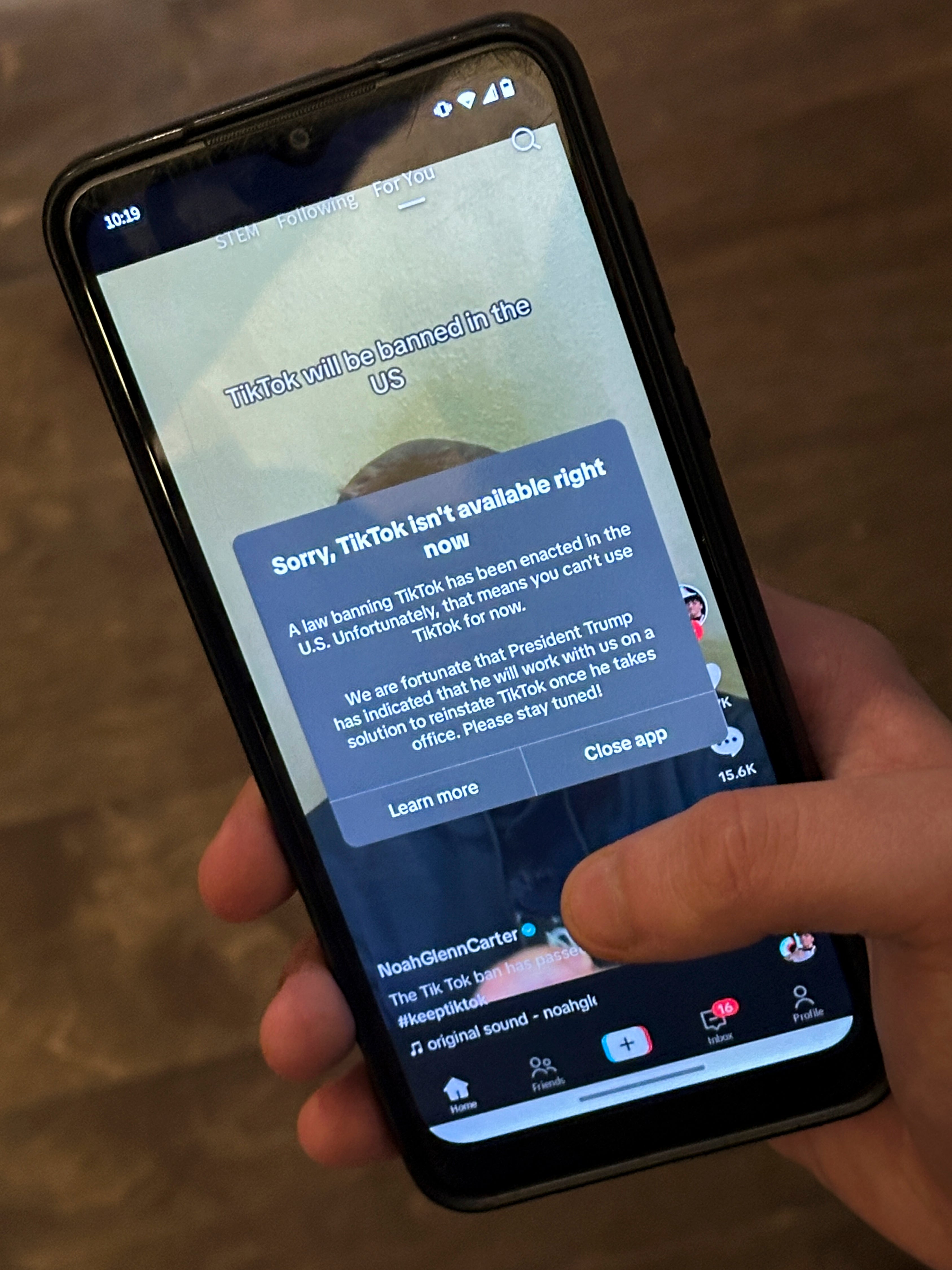TikTok has stopped working in the United States and disappeared from app stores ahead of a law that requires the shutdown of the platform used by 170 million Americans.
President-elect Donald Trump has said he would “most likely” give TikTok a 90-day reprieve from the ban after he takes office on Monday, a promise TikTok cited in a notice posted to users on the app.
“A law banning TikTok has been enacted in the U.S. Unfortunately, that means you can’t use TikTok for now. We are fortunate that President Trump has indicated that he will work with us on a solution to reinstate TikTok once he takes office. Please stay tuned,” the message notified users trying to use the app late on Saturday night.
Other apps owned by ByteDance, including video editing app CapCut and lifestyle social app Lemon8, were also offline and unavailable in U.S. app stores as of late Saturday.

NordVPN, a popular virtual private network, or VPN, allowing users to access the internet from servers around the world, said it was “experiencing temporary technical difficulties.”
Web searches for “VPN” spiked in the minutes after US users lost access to TikTok, according to Google Trends.
VPNs allow users to spoof the location of their device in order to make it appear to websites that it is in a different country or location.
This works by re-routing the traffic through various different internet servers in order to scramble and disguise the real IP address of the smartphone, tablet or computer.
By offering a private connection, VPNs have become a popular tool for journalists, whistleblowers and any other people or organisations wishing to hide their web activity from internet companies, security agencies and hackers.
A significant rise in major data breaches in recent years have also made them increasingly popular with internet users who want to better protect their private information online.
While some VPN services charge people to use them, many offer free versions with limits on the amount of data that can pass through them.
Some web browsers, such as Opera, even integrate a free VPN into their platforms in order to accommodate privacy-minded users. Other VPNs, such as Invizbox, come in the form of hardware that can be plugged into a router to disguise all web traffic passing through it.














